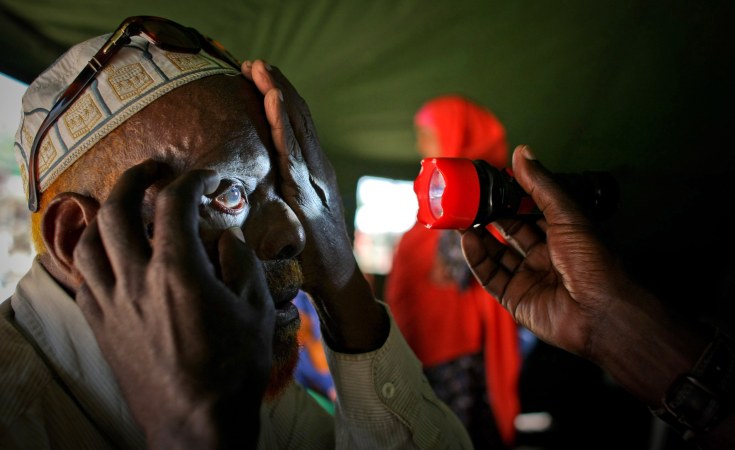Chicago — In the 1980s, more than 3 million people worldwide were infected with Guinea worm. At the end of 2022, the number of reported cases globally was down to 13.
There were 15 cases reported a year earlier, "which does not sound like a big reduction, but when you are dealing with very small numbers in very remote areas we take it as a huge step forward," said Adam Weiss, director of the Carter Center's Guinea Worm Eradication Program.
Guinea worm, a parasite usually ingested through contaminated water, grows inside the human body, then emerges through open sores creating intense pain.
When Weiss' organization, founded by former U.S. President Jimmy Carter and his wife, Rosalynn, began spearheading the effort to rid the world of Guinea worm parasites in 1986, it existed in 20 countries.
In 2022, just four countries reported new Guinea worm infections in humans.
"We had six human cases in Chad, five human cases in South Sudan, and one in Ethiopia and one in the Central African Republic on the border with Chad," Weiss told VOA during a recent Skype interview.
The Atlanta-based global nonprofit Carter Center is marking continued progress in the global fight against Guinea Worm infections as the World Health Organization recognizes World Neglected Tropical Diseases Day January 30.
Across the globe, from his office in Addis Ababa in Ethiopia, Dr. Zerihun Tadesse Gebreselassie was pragmatic about the overall eradication efforts.
"It's both good news and at the same time, not so good news," he explained during a Skype interview with VOA. Gebreselassie serves as the Carter Center's senior country representative in Ethiopia, a nation on the cusp of complete Guinea worm eradication.
"We are doing surveillance by moving from house to house in each and every village which has historically been reporting cases. So, we found only one person, and we found him before his clinical manifestation -- which means we suspected that this could be a Guinea worm case -- we kept him in a facility called a case containment center," Gebreselassie said.
The Carter Center also provides financial incentives for people to report any potential Guinea worm infections. That, coupled with a robust water source filter education program and continued monitoring efforts in countries where the parasite exists, is helping the Carter Center remove obstacles on the path to complete eradication.
"Since this is a global eradication program, even when you have one case, still you have to continue monitoring," Gebreselassie said. "We have to get rid of all cases for three consecutive years."
One of the biggest setbacks to declaring the world free of Guinea worm was its discovery in domesticated animals and wildlife.
"It was a punch to the gut back in 2012 when we started seeing infections," Weiss said.
But after years of dramatic increases in the number of dogs and cats in remote villages carrying the parasite, 2022 showed encouraging results.
"The last several years we went from several thousand animal infections to this year being just over 600 animal infections in the world," Weiss said.
But the magic number in the overall eradication effort is zero cases in both humans and animals.
"We have to get rid of it from all hosts in order to meet the definition of eradication," Weiss said.
Gebreselassie is optimistic that the goal of complete eradication is in sight despite setbacks.
"We are in the last mile, which is the most difficult one," he told VOA.
If the effort is successful, Guinea worm would be only the second disease eradicated from the planet, but the first through prevention as there is no medicine to treat, and no vaccine to prevent, infections.


